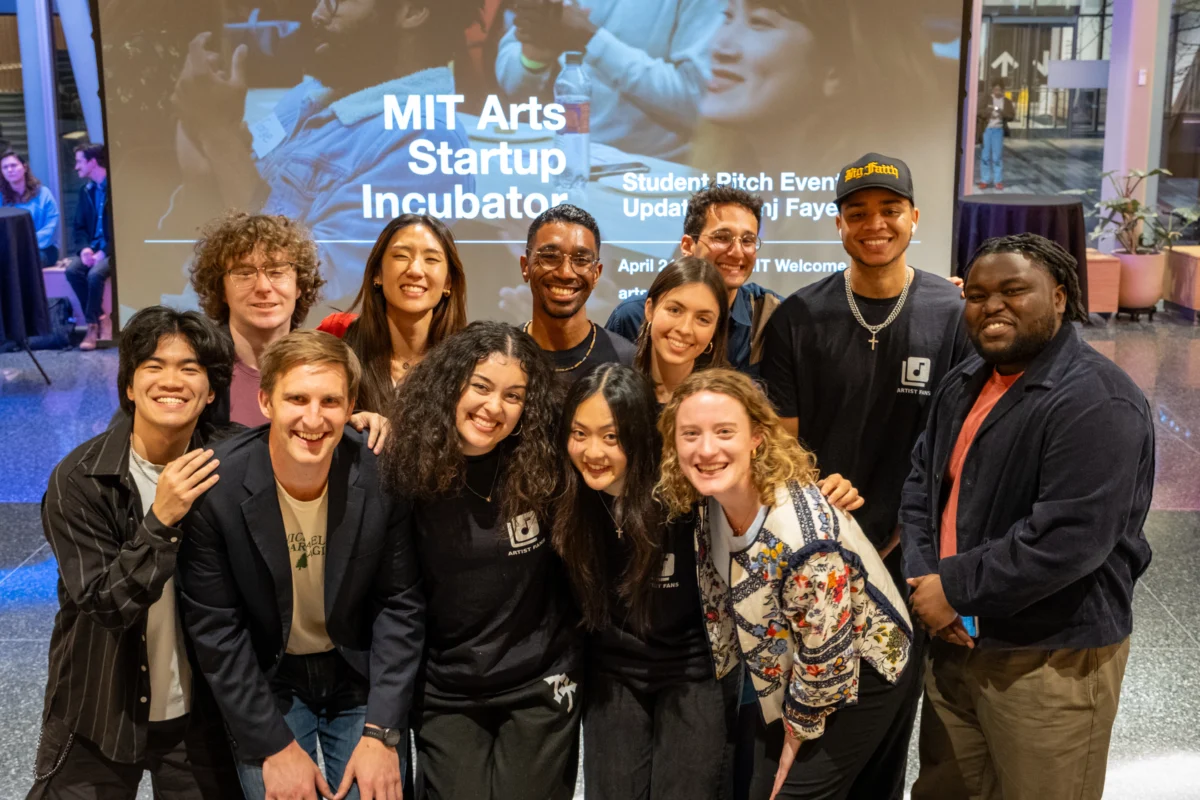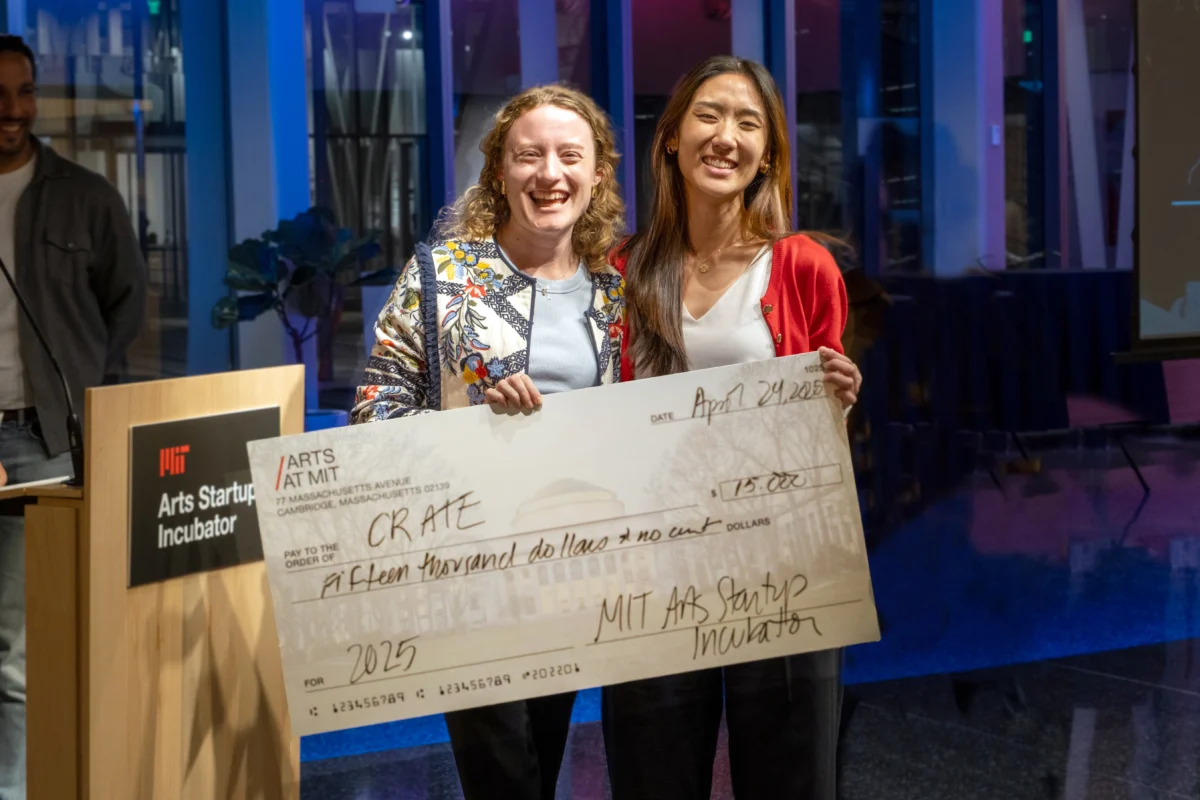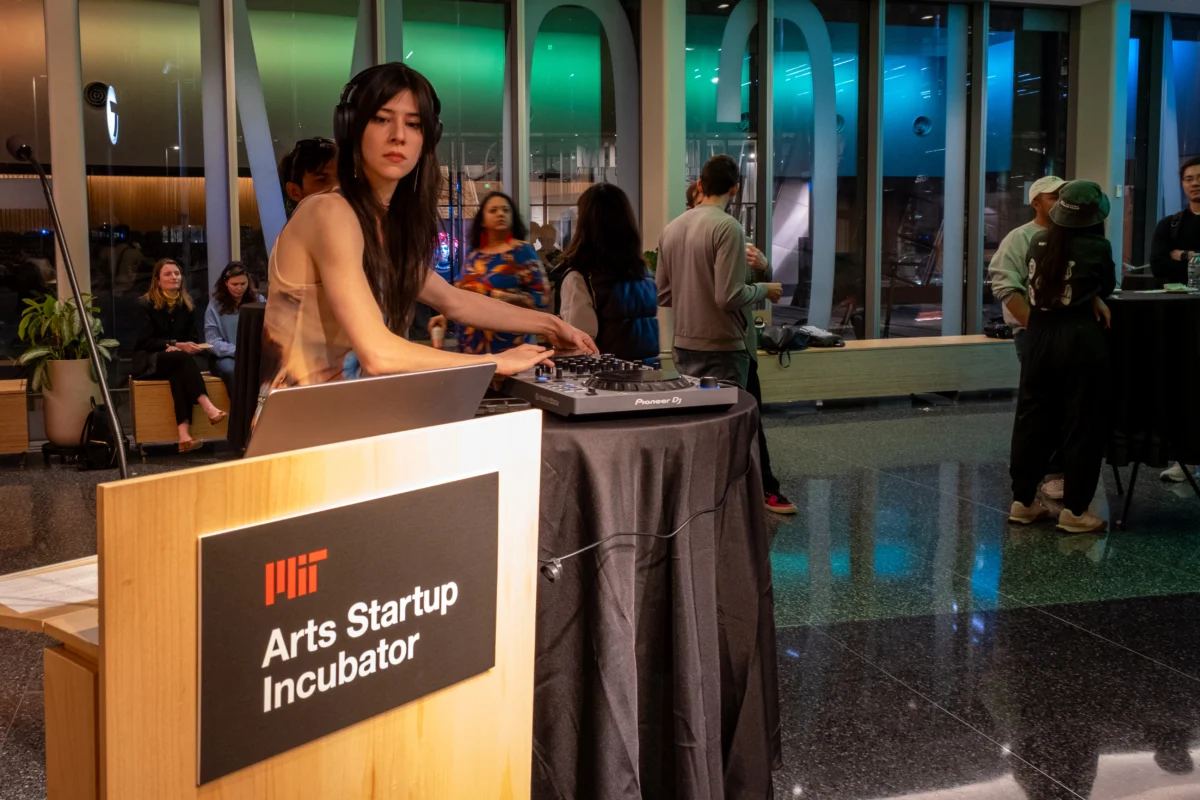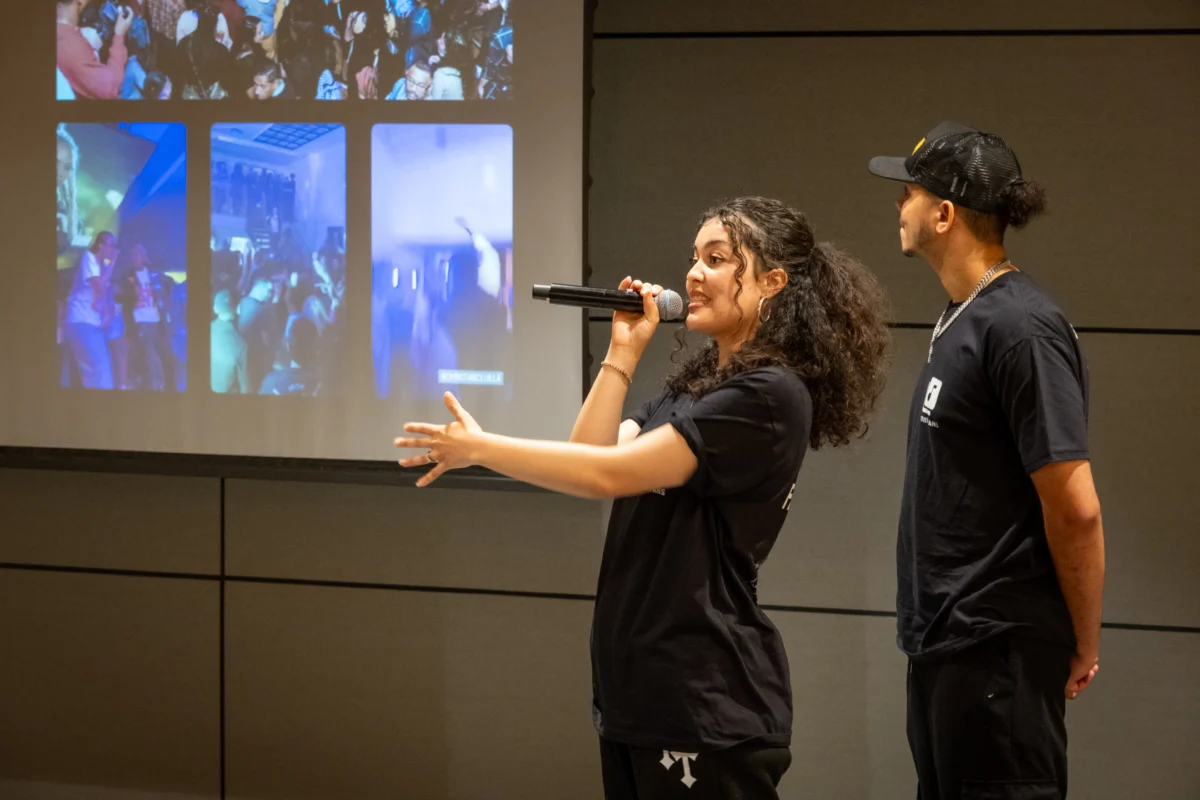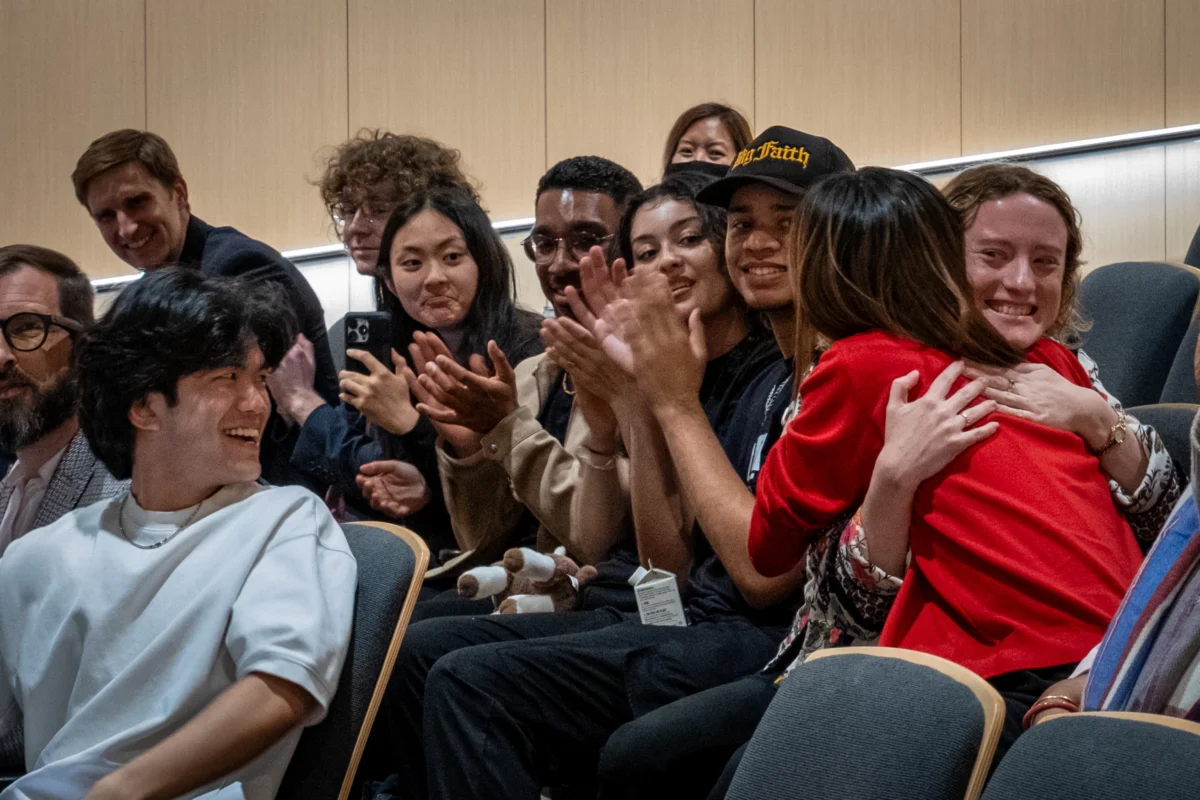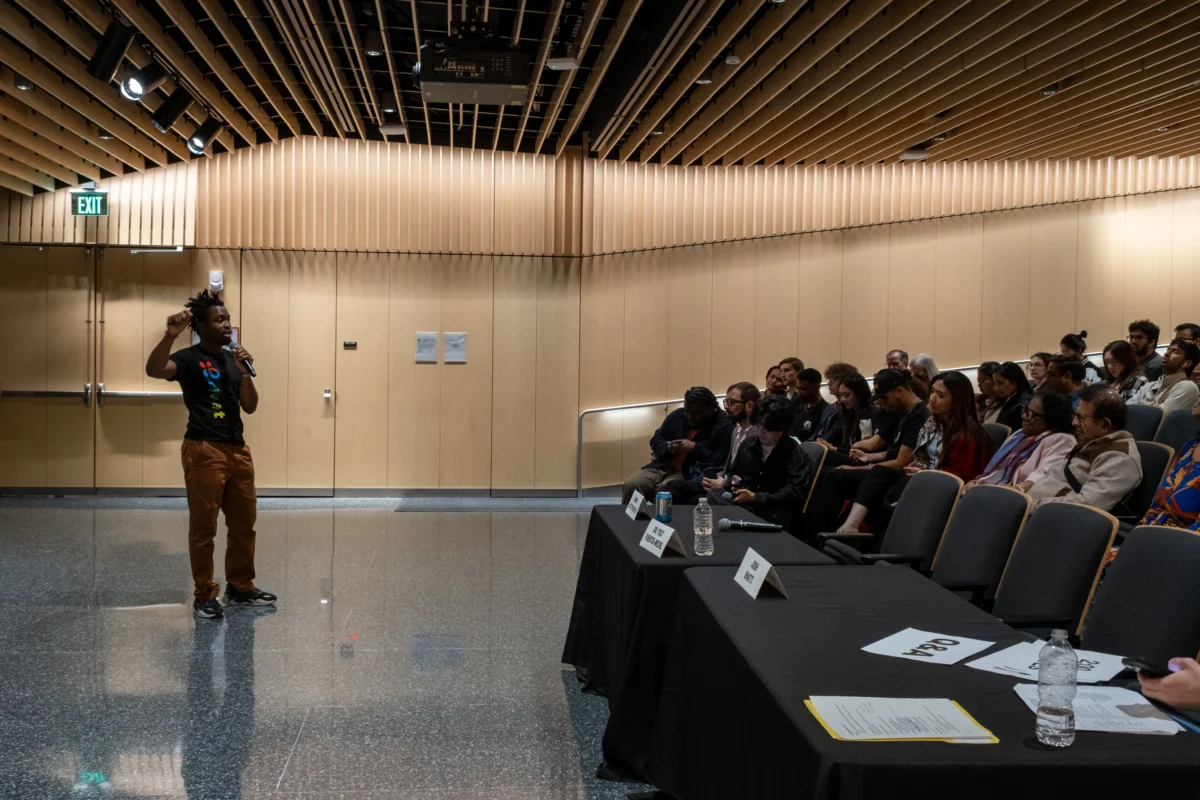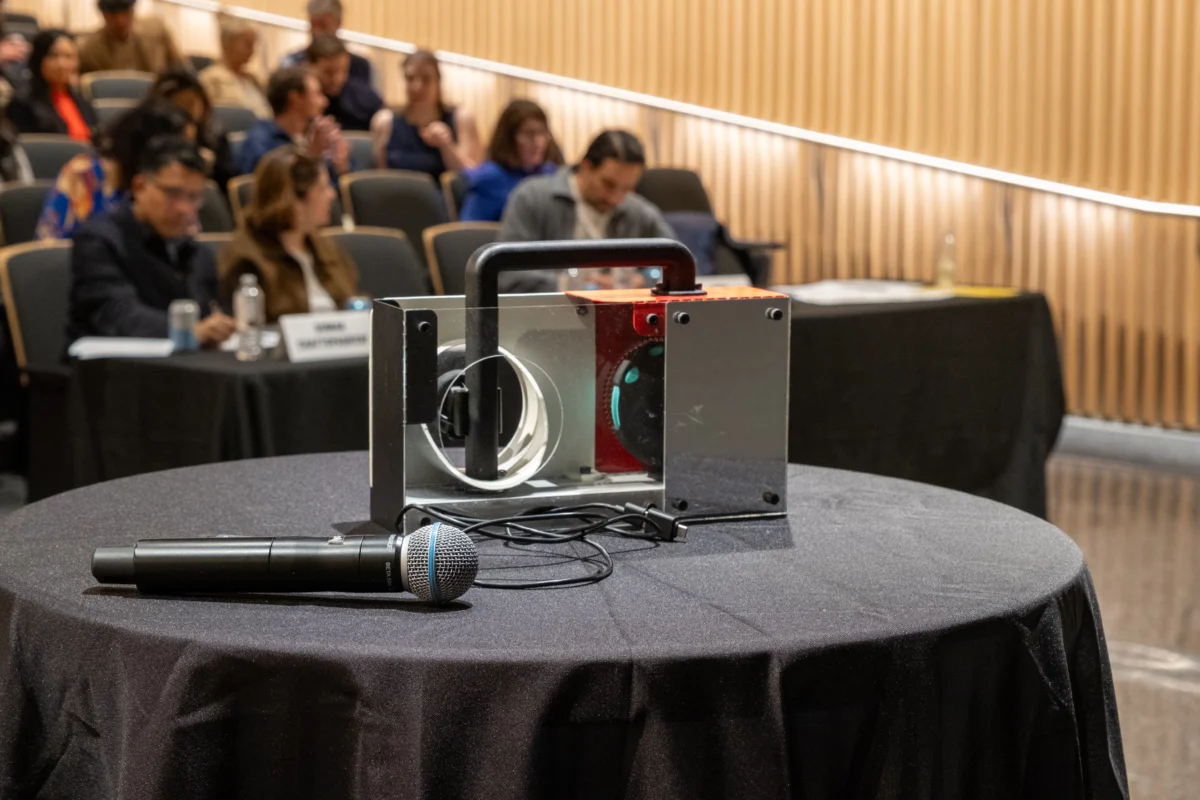The team at Front Row Fantasy got their arts venture idea from a text chain. The team at CRATE started out with a different idea for its creative enterprise—and a different name. Both teams, along with eight other teams, saw their projects take shape and evolve—in some cases dramatically—at the 2025 MIT Arts Startup Incubator.
“Having an arts incubator at a school like MIT is particularly valuable at this time,” says DAOuda Leonard, an artist manager and CEO of CreateSafe, a music technology startup for IP management software. Leonard was a speaker at last year’s pitch event and mentored the Front Row Fantasy team this year. “It places the humanities up front in determining how so many new technologies are being put into the world. It shows that the humanities can interface with technology, and that technology and society can benefit from that interface.”
Established in 2013, the MIT Arts Startup Incubator (formerly the $15K Creative Arts Competition) encourages and assists aspiring entrepreneurs to develop viable business plans and pitches for arts-based ventures. In late April, at the final pitch event, CRATE, a a B2B platform that enables gallery owners to better forecast costs before making business decisions, won the $15,000 first prize. The remaining four finalist teams each received $2,500 in seed funding.
This year’s Arts Incubator kicked off at a September launch event, followed by two info sessions in October. Thirty-one teams applied to the program, with 10 semifinalists selected in November. Five teams made it to the final round in March. There were several new features including a learning intensive during Independent Activities Period (IAP), a prototyping workshop, and one-on-one business plan advising. As in past years, teams received direction and feedback from industry mentors, business consultants, pitch coaches, and their peers.
“It’s wonderful to have this space where engineering or design or business students can follow their passion for the arts,” says Nir Hindie, founder of The Artian, a creative leadership development atelier. Hindie helped each of the 10 semifinalist teams develop and refine their business plans. “But it’s just as important that we help people learn to be more creative in their own fields, to bring that passion for the arts into technology, medicine, or commerce. This Incubator can do that.”

Got Music?
Front Row Fantasy started as a text chain about independent music. It evolved into a fantasy-sport inspired platform where music fans manage their own virtual labels and compete with their friends. The platform already has five independent leagues. “I have participated in a handful of accelerators and incubators, and this one exceeds them all,” says team co-founder Blake Blaze, MBA ’26, a former Navy cyber intelligence officer and math teacher. “I’ve never had access to this level of programming or connections. And the team spirit among the teams is incredible. We root for each other. We want all our ideas to succeed. Jane and Michelle from CRATE are members of our fantasy league.”
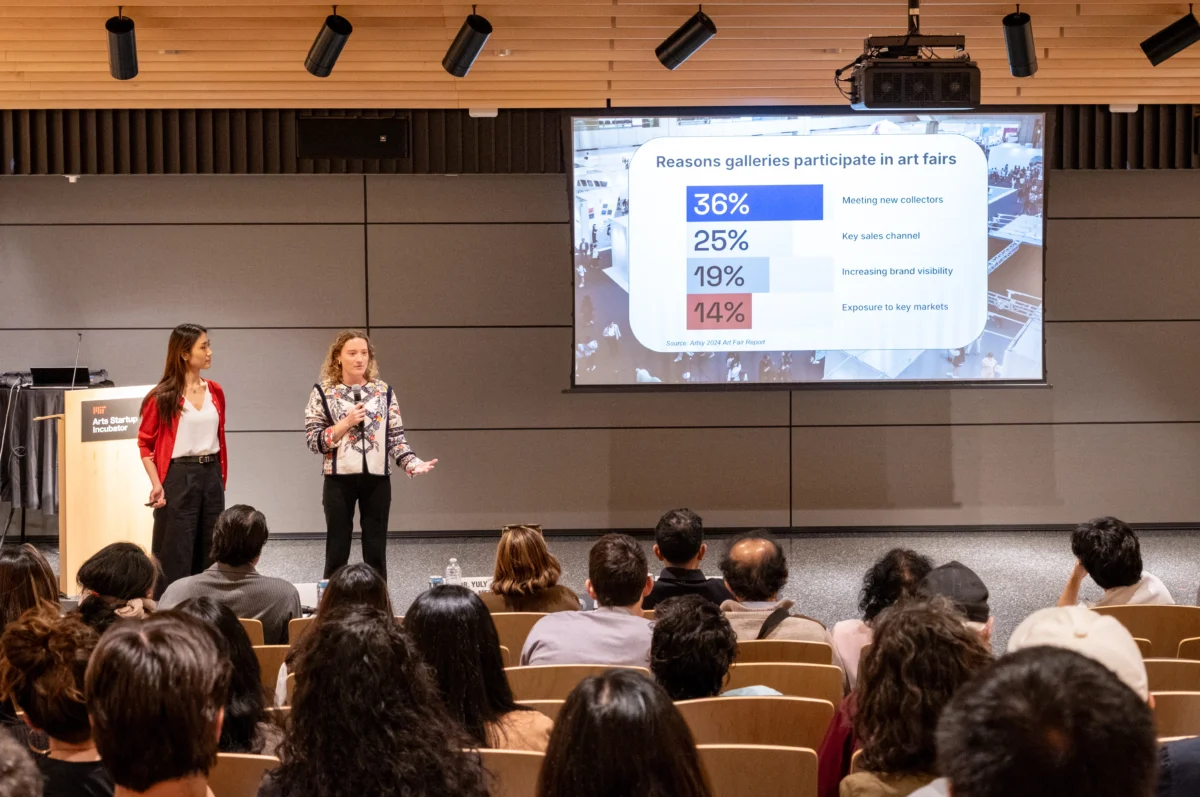
The Courage to Change Course
MBA students Michelle Kang and Jane Booth had a clear goal when they entered the Arts Incubator: to help art galleries stay profitable. Their strategy to reach that goal was less clear. Through discussions with gallery owners and industry mentors, Kang and Booth refined their idea into CRATE, a B2B platform that enables gallery owners to better forecast costs before making business decisions. “It was exciting to pivot from our initial idea,” says Kang, a lifelong arts enthusiast who previously worked in energy strategy, corporate development, and sustainability. “And exciting to rely on our network to help shape what the real need is.”
“Each time we had a meeting, we’d leave saying we couldn’t believe we were getting this sort of access to so many experts,” says Booth, who previously worked in private equity and art advising. “Especially experts who so clearly want us to do well.”
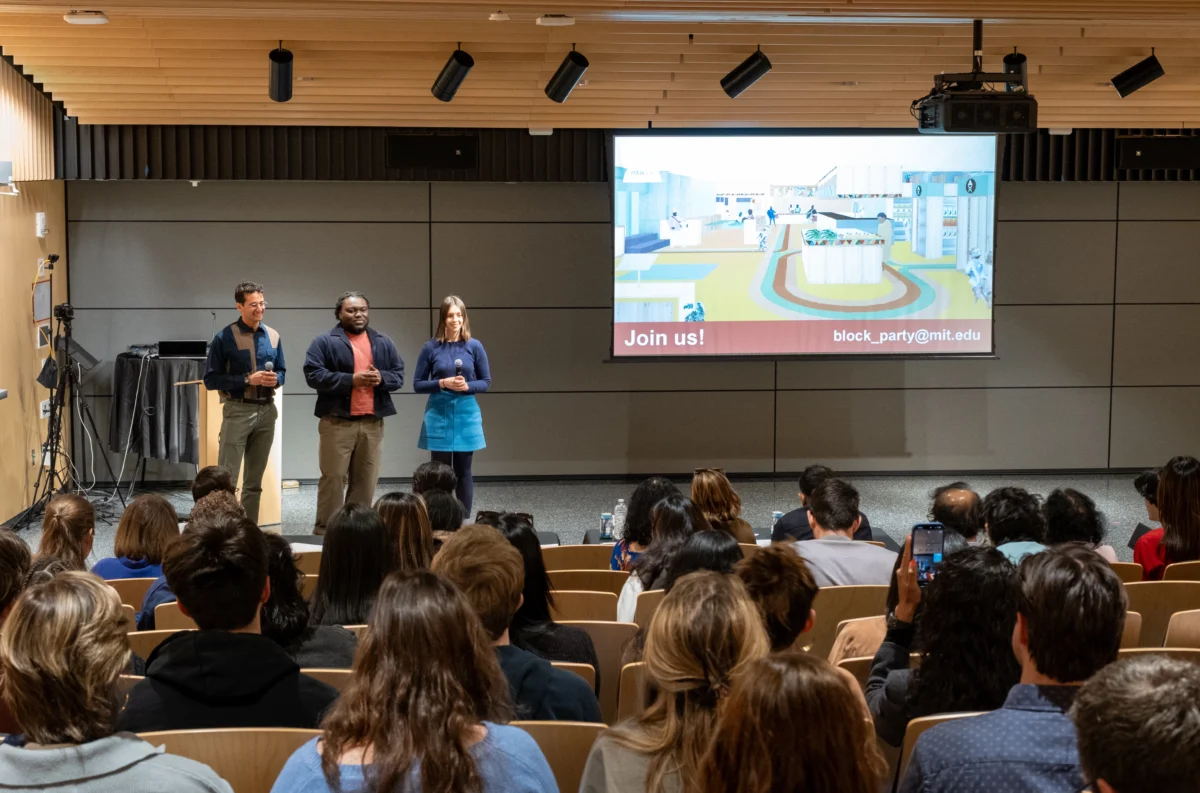
Telling The Story
For some teams, it wasn’t their idea that needed adjustment; it was the way they presented it. At the first of two pitch coaching sessions in April, Block Party, an initiative to create cultural programming in neighborhood commercial spaces, led off with a flurry of statistics and projections. “The feedback I got at that first session inspired us to make our pitch look more artistic, and to lead off with my own story,” says Block Party team member Bolurin Adedipe, MArch 26. “I grew up in my family’s small grocery store in southeast London. It was a place of business, but even more it was a space of community, a place of creativity. Leading with that story really helped us convey what we’re attempting to do with Block Party.
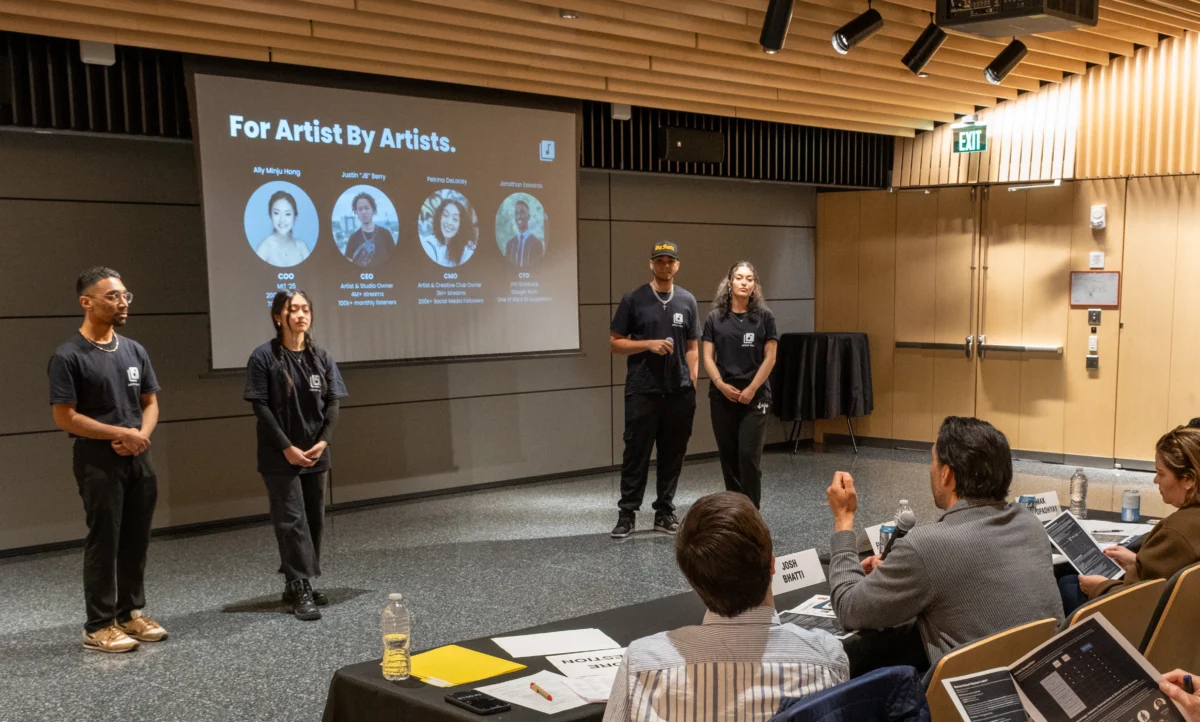
Connecting Artist with Their Fans
Many of the 31 proposals submitted to the Arts Incubator involved music, including Artist Fans, a platform that empowers independent musicians to connect directly with their fans. “We wanted to create a platform where artists could make a little more than the $0.003 they get for a Spotify play,” says Artist Fans co-founder Ally Minju, ’25, City Planning and Computer Science. Last fall, working on their own, her team wrote some code and built wireframes. They were accepted as Arts Incubator semifinalists in November.
The team’s basic revenue idea soon evolved to include short content, videos, and a dedicated messaging platform to connect artists and their fans. “It was inspiring to have this space to ideate and explore,” says Minju, an independent artist who just dropped her first album. “Not working in isolation but surrounded by other teams all trying to bring their ideas to life. And supported by mentors who have been in our position but are further down the road.”
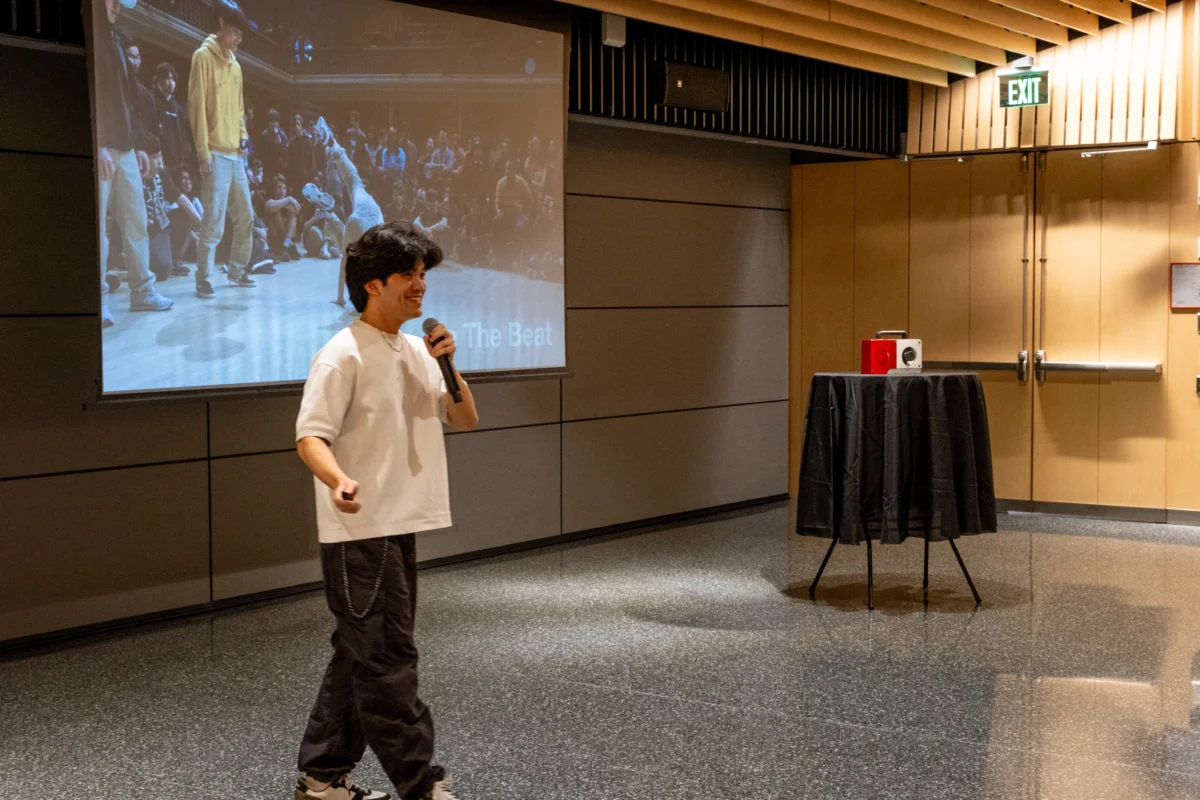
Dancing To Their Own Drummer
Ethan Chang, ’25 Mechanical Engineering with a minor in Design, took up break dancing as a hobby during his second year at MIT. “I always had this feeling that I wished I could dance to the music I heard in my head,” says Chang. That feeling led to Be the Beat, an interactive boom box that monitors a dancer’s movements and generates bespoke music and beats. Be The Beat will first be available as an app.
Chang built his first prototype in a design studio class and came to the Arts Incubator to draft a business and marketing strategy. “At most incubators and accelerators, they ask what problem you are trying to solve,” he explains. “Our project didn’t have a problem. It was simply a fun thing to have. The Arts Incubator felt like the perfect place to develop it. A place where everyone is a kind of artist, and where people help ideas become real.”
Written by Ken Shulman
Editorial direction by Leah Talatinian

